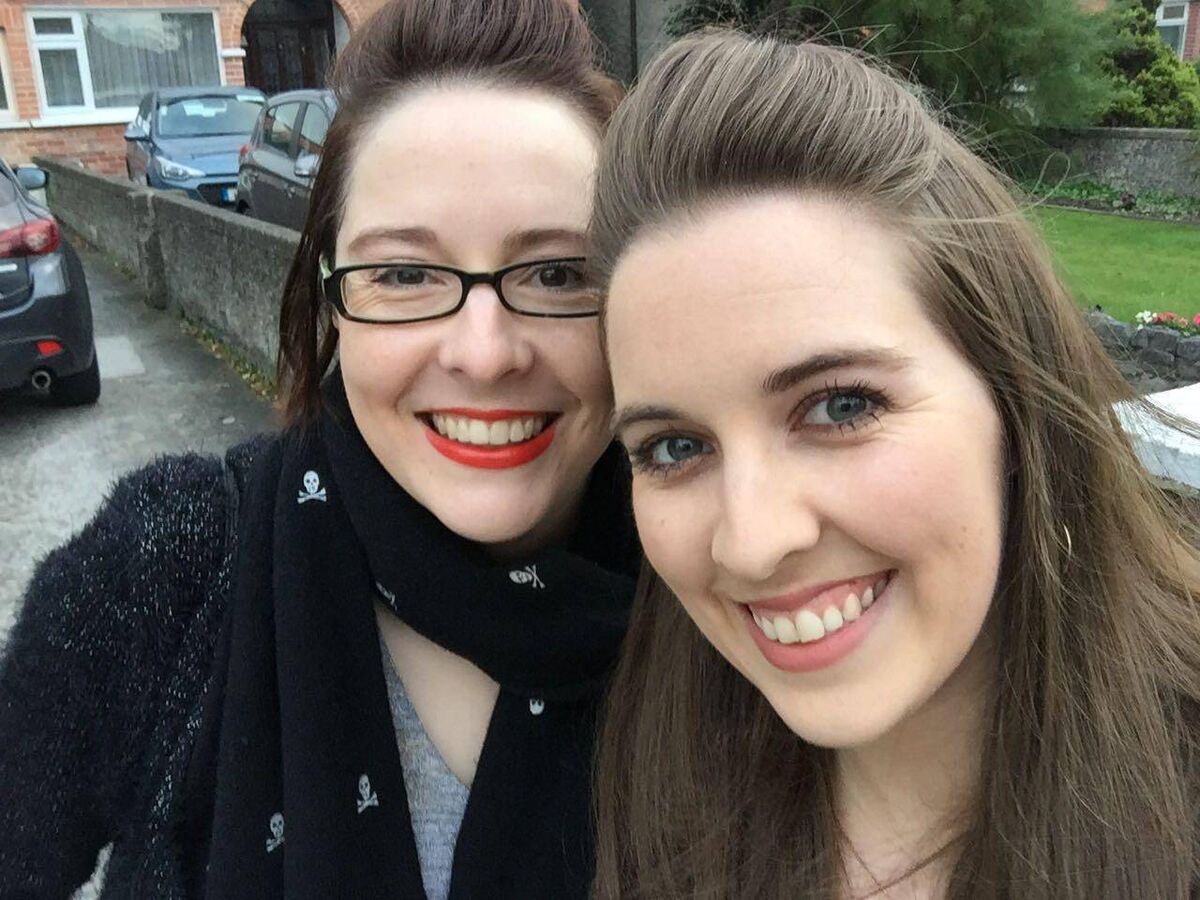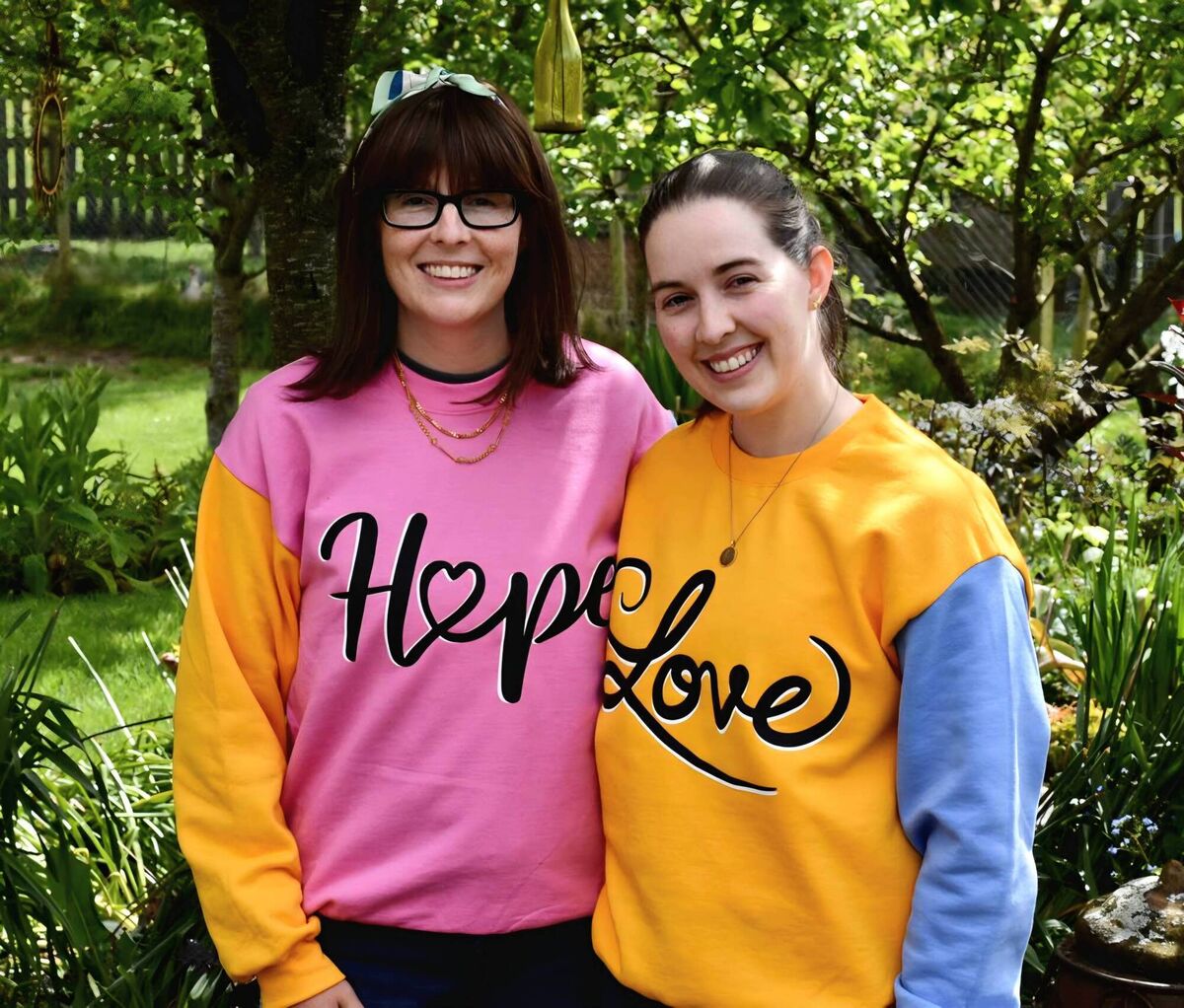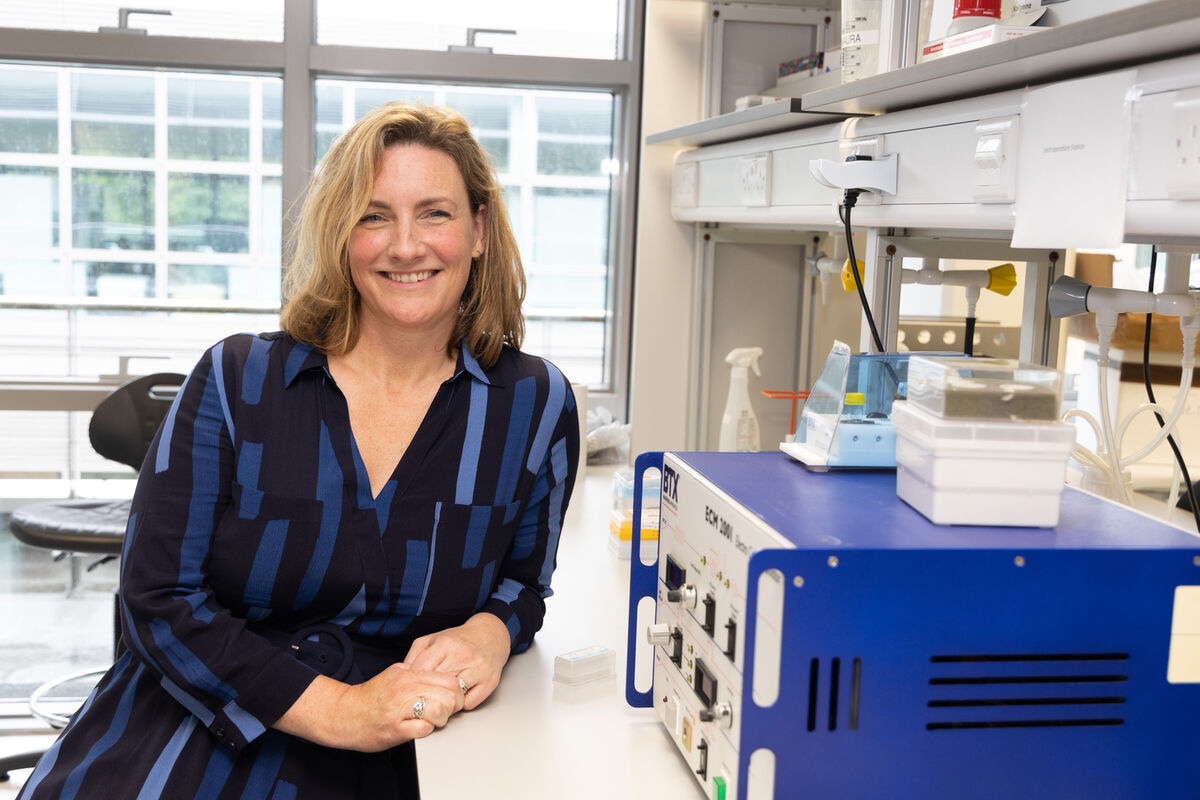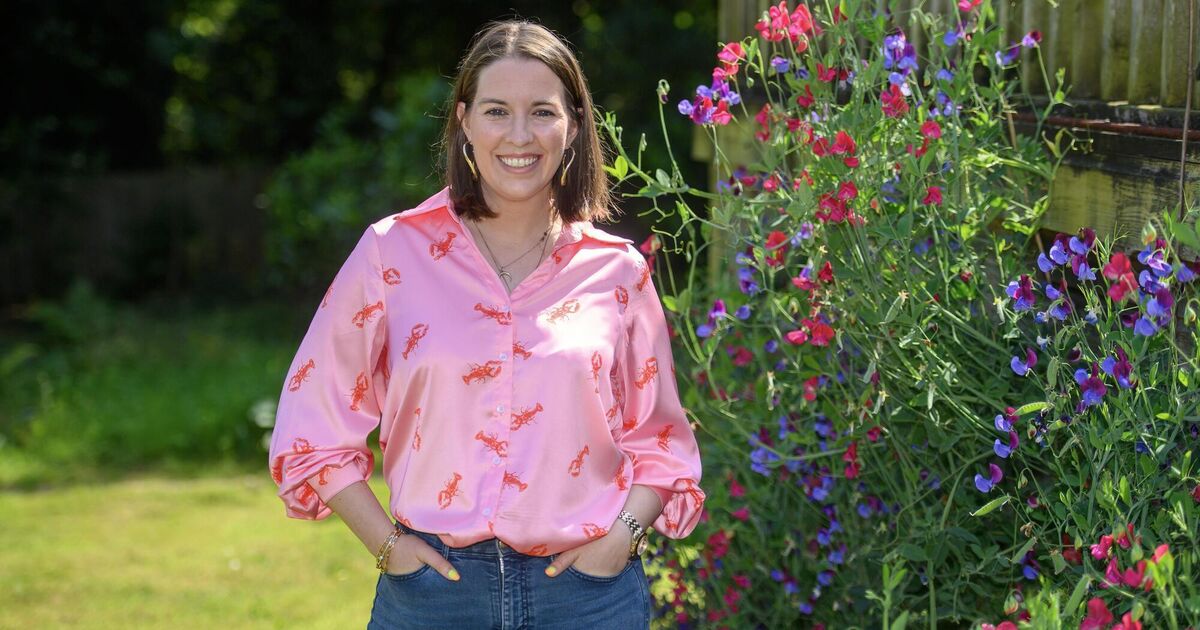WE all share family traits, whether it’s eye colour, facial features, mannerisms, or aspects of our personality.
But a vulnerability to certain illnesses can also be passed down the family tree.
This is true of Fiona Ryan, whose beloved eldest sister, Gráinne, developed breast cancer at 33 and sadly passed away seven years later, at 40. The Cork woman had a faulty BRCA2 gene and died in November 2021.
 Gráinne & Fiona Ryan, October 2016.
Gráinne & Fiona Ryan, October 2016.
“It was devastating to lose Gráinne,” Fiona says. “Despite the fact that she lived with cancer for seven years, she was always trying to stay positive and upbeat about the future, never wanting to think about the what-ifs.
“And I followed her lead. Maybe that was my way of coping — never thinking of her not being here. In the end, everything happened so quickly, and I felt completely unprepared. But I don’t think you can ever be prepared to lose someone you love.”
The family only discovered the faulty gene after Gráinne, who was married to Paul, developed cancer.
“Another of our sisters, who is a medical scientist, had an awareness of it, and so when Gráinne was diagnosed at such a young age, she raised it with her oncology team, who agreed that she was eligible for genetic testing,” Ryan says.
“Once she was diagnosed as being an altered BRCA2 carrier, it meant that the rest of our family had the option to get tested, too, a procedure which was straightforward and painless — it’s a simple blood test — which is sent away for analysis with results back in two weeks, as a lot of the gene mapping was already in place, thanks to Gráinne.”
 Gráinne & Fiona Ryan, May 2021.
Gráinne & Fiona Ryan, May 2021.
Unfortunately, Ryan, a marketing director, who was 28 at the time, was told her results were positive. She is now being monitored to ensure that if she develops cancer, it will be dealt with swiftly and efficiently.
“This gene is always with me, quietly in the background, like waiting for a switch to flick,” says Ryan, who lives in Ovens.
“But with it comes empowerment, and I have chosen the surveillance path. I go to hospital twice a year for mammograms and MRIs, so that if anything does change, I am giving myself the best possible chance to catch it early, when treatment is most effective and survival rates are at their highest.
“Hopefully, my husband, Gavin, and I will be lucky enough to have children, and when I am finished growing my family, I plan to take further steps and have preventative surgery — removing my breasts and ovaries — which will significantly reduce my risk.
“It’s a serious choice, but it will be mine to make.”
She is grateful to the researchers and healthcare professionals who are “dedicating their lives” to finding better treatments for cancer and for genetic mutations.
“As I carry my diagnosis with me, I do so with a hope and optimism for my future and others like me, so that through our choices, there will be more and more survivors of cancer.”
Ryan is just one of the people who will be sharing her story and that of her late sister at an exhibition, Cancer Revolution: Science, Innovation and Hope, which runs from today to October 31 in Stephen’s Green Shopping Centre in Dublin.
Free and open to the public, the exhibit brings together personal experiences, historic artefacts, scientific discoveries, and cutting-edge technology to show how science is transforming cancer care.
“My contribution to the exhibition is very small, but being able to support Breakthrough Cancer Research means so much to me, as it did to Gráinne, too,” she says.
“I have shared a short personal piece on what it means to be a carrier of a faulty BRCA2 gene and hope that by giving a brief insight in to my experience, it might help others who are just starting out on this journey, and show other carriers that they are not alone.
“I’m a huge advocate for the work that Breakthrough Cancer Research does. I’ve never come across a more passionate and determined group of people, doing everything in their power to help those affected by cancer and their families. So, it was an honour to be asked to participate in their exhibit and support them and the life-changing work they are doing.”
In Ireland, one in 400 people (0.25%) is estimated to carry a harmful BRCA1 or BRCA2 gene mutation. People with a strong family history of breast or ovarian cancer are most likely to be referred for genetic testing and counselling.
 Orla Dolan, CEO of Breakthrough Cancer Research. Photo Darragh Kane
Orla Dolan, CEO of Breakthrough Cancer Research. Photo Darragh Kane
Orla Dolan, CEO of Breakthrough Cancer Research, says that while someone who has an altered BRCA1 or BRCA2 gene will not always develop cancer, the likelihood is significantly increased.
“BRCA1 and BRCA2 genes help protect us from cancer by fixing damaged DNA,” Dolan says. “If these genes have a fault (mutation), they stop working properly, and cancer can develop more easily. We inherit one copy of each BRCA gene from each parent and if one has a BRCA mutation, the child has a 50% chance of inheriting it.”
People with BRCA mutations have a higher risk of breast, ovarian, prostate, and pancreatic cancers.
“A genetic test can show if someone has a BRCA mutation, helping them make informed choices about screening and prevention,” says Dolan.
“For women with a proven alteration in either BRCA1 or BRCA2, the risk of developing breast cancer may be as high as 85% across their lifetime, while the risk of ovarian cancer is lower and is different for the two genes. The lifetime risk of ovarian cancer associated with BRCA1 is approximately 40-60%, and with BRCA2 is approximately 15-30%.”
Dolan says that if, through genetic testing, a person finds they have a BRCA1 or BRCA2 gene mutation, they can choose to have increased surveillance or risk-reducing surgery.
“It is a personal choice and is discussed and planned with the specialist genetic team after the results of a genetic test.”
Ryan encourages others to get tested if they feel that they may be at risk.
“I could not advocate more for being tested,” Ryan says.
“I would have found it much more difficult to live with the uncertainty of not knowing, or second-guessing what every single twinge or pain might mean.
“But even if other members of your family carry the [faulty version of the BRCA] gene, it does not mean you will — you will have a 50/50 chance of not being a carrier.
“For anyone who finds themselves facing this decision, take control and decide on what the best path forward is for you, be that surveillance or preventative surgery, or both. There is really great support out there for anyone looking to talk.”

